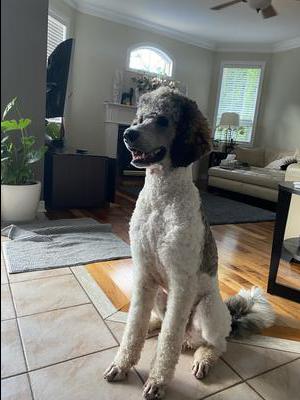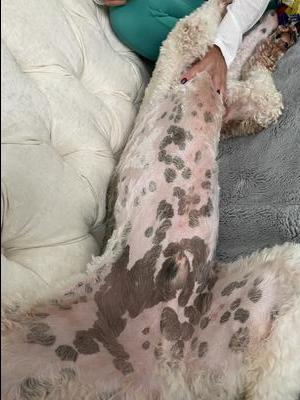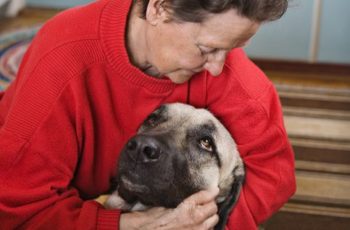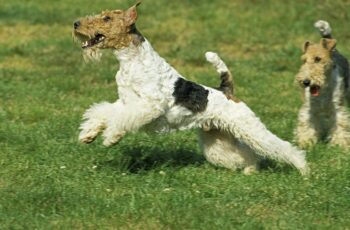by Sarah
(Toronto, Ontario)

I have a standard part poodle that is one year old.
He is on a raw food diet. I give him apple cider vinegar tablets twice a day with his meals and 2 tablespoons of organic grass-fed yoghurt every other day mixed with water.
I’ve tried giving him Tums but was afraid of the long-term effects of calcium buildup hence I stopped it. I’ve tried everything to get rid of his staining but it doesn’t seem to work. Any suggestions would be appreciated.
Sarah
Hi Sarah,
Janice here from Small Dog Place,
It sounds like you are doing all the right things as far as diet and supplements, so that does not seem to be the problem. In a situation like this, I usually break down the possibilities so that you can rule out anything that doesn’t seem applicable. I hope that is OK with you.
1. Has your dog always licked his paws, even from puppyhood? It could be a behavior issue or there could be a medical cause for it. Think back to when it all started and if anything has changed in his world since the licking began.
2. Before calling your vet, check out his paws for any injuries, both the foot as well as the paw pads. Feel for anything that might be between the paw pads such as mats or a little pebble. Look for cuts and scraps. Look for redness which might indicate a burn from hot concrete or a chemical burn. Sometimes dogs lick their paws because they are hurt or are injured in some way.
Another possibility is dermatitis. Is he allergic to something in his environment? Have you changed anything recently such as cleaning products or yard products? Could he be allergic to something outside? Could he be allergic to his food or treats? Any type of allergy can cause irritation on their skin.
3. Rule out any external parasites such as fleas. Sometimes a flea allergy can be very uncomfortable for dogs and they will lick. If he does have fleas, treat that first.
4. All of the above questions deal with medical issues that need to be ruled out before you can address any behavioral issues. Call your vet to schedule an appointment to rule out any other health-related problem that might be causing him to lick. Also, sometimes licking behavior leads to secondary bacterial infections that need to be treated.
5. Behavioral problems that might cause a dog to lick include compulsive behaviors, stress, anxiety, boredom, separation anxiety, or loud noises such as thunderstorms.
There are treatments for all of these issues to help and encourage him not to lick. The trick is discovering which one is the culprit.
Once he has stopped licking and has had a few grooms, the hair will return to its normal color. Please feel free to contact me if you have further questions at janicejones@smalldogplace.com



